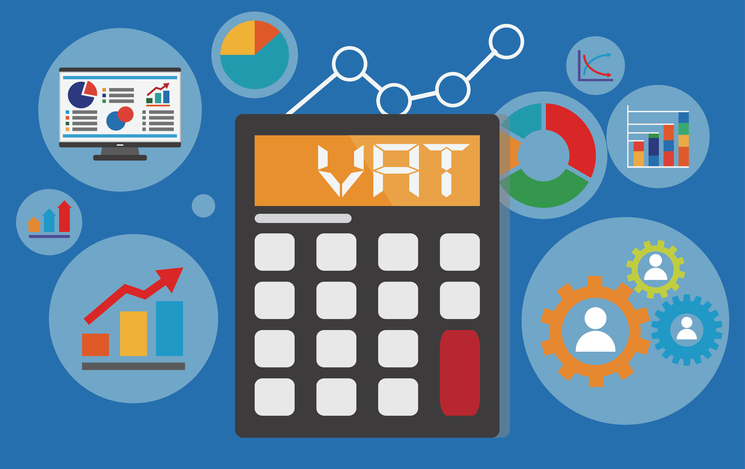The Ins and Outs of VAT
 TaxAgility pride ourselves on being experts in the field of chartered accountancy, and specialists in advising and guiding start-up companies in the world of business.
TaxAgility pride ourselves on being experts in the field of chartered accountancy, and specialists in advising and guiding start-up companies in the world of business.
VAT services
Whether you have a start-up company or a well-established business, meeting your VAT responsibilities are important. Dealing with VAT can sometimes be difficult, and its confusing nature can often lead to over- or underpayment, thereby creating unnecessary problems for you and your business. This is where TaxAgility comes in. We offer a range of VAT services that can help make life easier for you.
Such services include:
- Advice on the best VAT strategy for your business
- VAT registration assistance
- Assistance with the preparation of quarterly returns
- Providing VAT advice for complex financial transactions
- Investigation of VAT assessments
- VAT control and reconciliation
By offering these services, TaxAgility can provide a thorough and detailed assessment to ensure that you are dealing with the VAT laws correctly, as well as giving you some piece of mind regarding ways in which to guarantee the maximum savings for your business.
The VAT Flat Rate Scheme
As a small business owner, or the head of a start-up, getting your head around VAT can be confusing. After assessing your situation, we can offer step-by-step advice to help you decide when you need to be registered and which schemes can most benefit you. One scheme available to small businesses is the VAT Flat Rate Scheme. This scheme greatly simplifies the VAT accounting process, which allows small business owners to focus on the more important day-to-day running of their companies, instead of dealing with time consuming, complicated VAT forms. This scheme also has many other advantages, most notably the fact that you do not need to make a note of the VAT charged on every sale/purchase, and that there are fewer complicated rules involved in the process, all which helps to simplify those VAT forms and reduce the chances of mistakes.
And to make things even easier for you, we can handle all your paperwork and interact with the HMRC on your behalf.
Contact us
Our range of professional advice regarding the ins and outs of VAT means that we can find a solution for you quickly and easily. Contact us on 020 8780 2349 to speak to TaxAgility account and to find out the best ways to manage your VAT.
Limited Companies vs. Umbrella Companies
 You’re looking for a career change and have decided to work for yourself and become a contractor. However, you’re not sure of the benefits or whether you should set up as a limited company or with umbrella company.
You’re looking for a career change and have decided to work for yourself and become a contractor. However, you’re not sure of the benefits or whether you should set up as a limited company or with umbrella company.
There are many benefits to becoming a contractor. You have more freedom and flexibility when it comes to your hours as well as many financial benefits. All this freedom does not come without added responsibility. Unfortunately, contracting also comes with a great deal of decisions. As a contractor, there are a few options as to how you want to run your business. However, understanding the best course of action can be confusing. Before making the decision, it is important that you understand the different options and all they entail. It is also important to take notice of the new IR35 legislation and how it affects contractors.
Limited Company
The first option for a contractor is setting up a limited company as it means that your personal finances will be separate from your company finances. This is good news for you as your personal finances will not be affected by anything that happens with the limited company making a limited company the most tax efficient option. It is important to note that with a limited company, you usually end up taking home between 75 to 80% of your total earnings.
However, it is important to understand that setting up a limited company means that you will be responsible for administrative and legal obligations for the company. You will be responsible for invoices and payrolls. This can be extremely time consuming and take away valuable time you could spend on your business. Read more for information about the inner workings of Limited Companies here.
Umbrella Company
The second option is to set up an umbrella company which lifts the burden of all the administrative responsibilities off your shoulders. An umbrella company will handle all the administrative details so you can focus on your business. All you have to do is submit time sheets and expenses, something our accountants can help you with. This will save you a lot of time and stress that sometimes comes with a limited company.
While you won’t have to deal with any administrative duties, you will have to pay a monthly fee to the umbrella company. This means that instead of taking home 75 to 80% of your total earnings, you will only take 60 to 65% of them. This can add up when it comes to long term contracting. You can read our page on Umbrella Companies for more details.
Which Should You Choose?
We believe there is no ‘one size fits all’ when it comes to choosing between a limited and an umbrella company. The answer widely depends on your goals as a contractor and we understand that everyone has different business goals. If you will only be contracting for a short amount of time, it might be more beneficial to set up an Umbrella Company. For long term contracting, a limited company may be the best option to maximise your profits. However, short term versus long term contracting are only two variables that go into the decision. At TaxAgility, we can look at your business to help you determine the best course of action for you personally. It is important to chose the option that brings the greatest benefits to you, and we can help you do that.
Making serious decisions such as this can be difficult. Call us on 020 8780 2349 to arrange a meeting with us so we can discuss which option is best for you.
